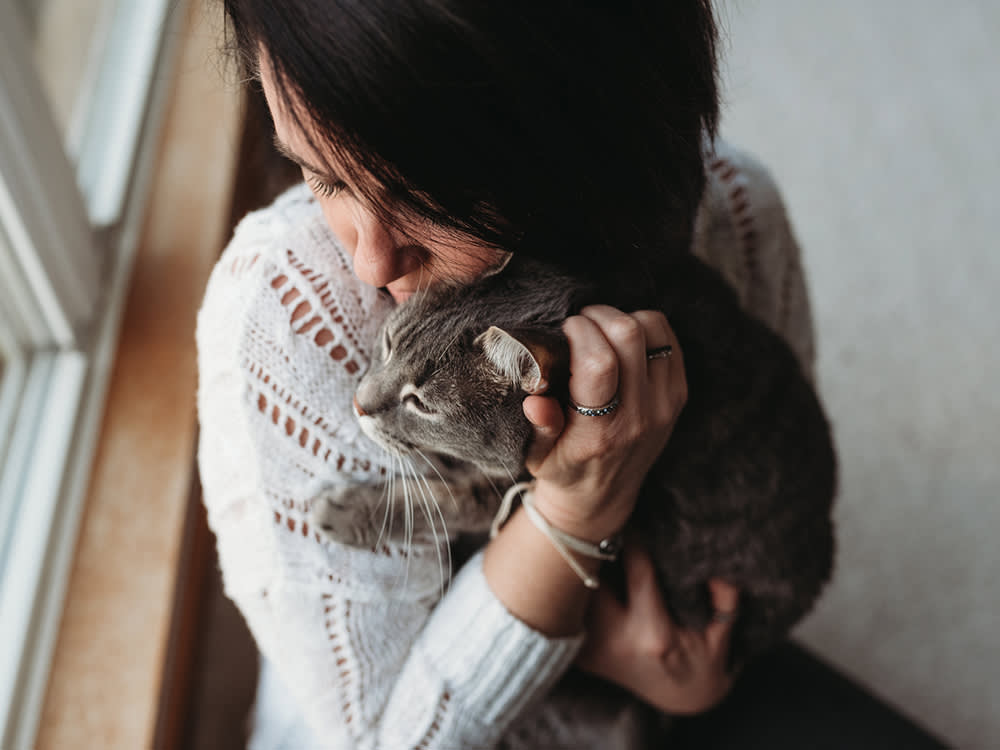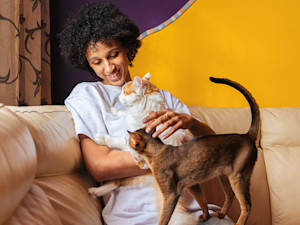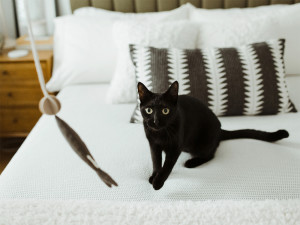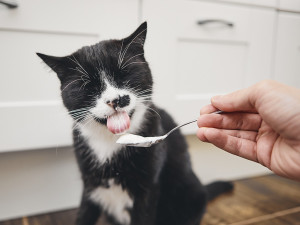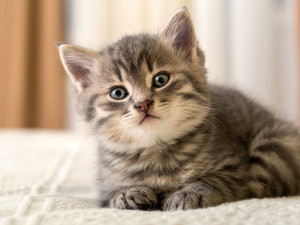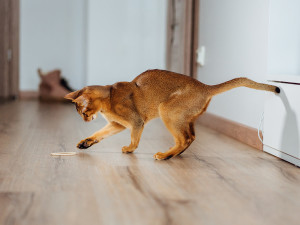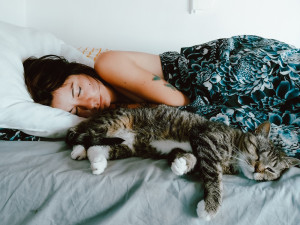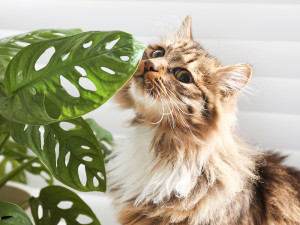Is Your Cat SAD?
Find out if your cat has seasonal depression, and how to combat it
Your Instagram feed went from #summervibes to #downwithwinter with the switch of the clock. With the sun setting before your work day ends, all you want to do is crawl under the covers, consume too many carbs and binge crime dramas – and your cat is right there with you. You’ve probably asked the question, “Why do cats sleep so much?” and they may be asking the same of you in the winter.
For humans, the arrival of winter can trigger a type of depression known as seasonal affective disorder (SAD). SAD causes symptoms like low mood, lack of energy, trouble sleeping, irritability and changes in appetite that are linked to colder temperatures and lack of sunlight. There is a lot of documented data about SAD in humans, but veterinary behaviourist Dr Leanne Lilly believes cats can experience seasonal depression, too.
“Is there a recognition of seasonal affective disorder in cats? No. But that doesn’t mean there aren’t cats experiencing it,” says Dr Lilly. “There are cats who seem to have significant changes in their overall mental health, well-being and behaviour with seasonal changes.”
Not sure if your cat suffers from seasonal depression? Watch for these telltale signs: Dr Lilly notes that depressed cats might sleep longer, lose their appetites, feel less interested in affection or interaction, or show signs of agitation like more ‘zoomies’ or general restlessness. If you recognise any of these changes, resist the temptation to play feline psychologist.
“Cats are notorious for hiding their illnesses, so we want to rule out other possible causes of behaviour changes,” says Dr Lilly. “If we rule out illness and the behaviours go away when the season changes and then come back again next autumn or winter, then we can feel more confident saying it’s seasonal affective disorder.” There are no approved medications to treat seasonal depression, but Dr Lilly has four pro tips to help your cat overcome the winter blues.
1. Let the sun shine in
Shorter days (and less sunlight) are believed to trigger chemical changes in the brain, including declines in melatonin and serotonin, the hormones that regulate sleep and mood. Provide your cat with some light therapy by hanging a cat hammock in the window or setting up a bed near a glass door or window, especially if there is a bird feeder outside so your cat gets some mental stimulation.
Setting up a ‘catio’ (a safe outdoor space), letting your cat out for a few hours during the day if they are an outdoor cat and the weather permits, or putting them in a harness and taking them out for a little vitamin D walk could also help boost their mood.
2. Prioritise playtime
Whether your cat responds to seasonal changes by sleeping more or feeling increasingly restless, exercise can help because it produces endorphins (the ‘feel good’ hormones). Dr Lilly suggests interactive cat toys, games and feeding puzzles that encourage your cat to burn some mental and physical energy.
“Increasing play sessions and making sure we’re interacting with them at least twice a day, as close to dawn and dusk [when sunlight levels are low] as possible, can help,” she says.
3. Change up their diet
Just like polishing off a bag of chips isn’t a cure for your low mood, offering your cat more kitty carbohydrates won’t help them overcome seasonal affective disorder. Talk to your vet about whether switching up their diet or offering some mood-boosting, stress-relieving supplements might help.
Dr Lilly points to probiotics, which can balance gut bacteria and help alleviate anxiety, and special ‘calming’ diets as options that might help reduce stress, depression and anxiety in some cats.
4. Encourage socialisation
Depressed cats may want to spend more time solo, but socialisation is key for improving their mood. To entice cats out from under the bed – literally – Dr Lilly suggests placing heating pads around the house. “It gives cats alternate places that are actually socially interactive where they can stay warm without missing out on social interactions,” she explains.
Spending extra time with your cat – even if you’re both curled up under a blanket and watching television – counts, too. Just as your cat might be suffering from the winter blues, if you are too, hanging out with your favourite feline may be a necessary mood booster for both of you.
